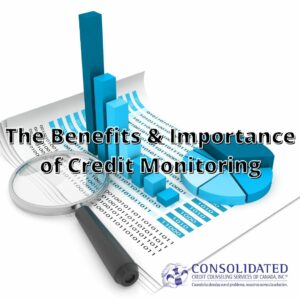As many of us know, one of the only ways to start making large purchases is to build a solid line of credit. The best way to go about building credit is to have a mix of different credit products. Credit products include credit cards, mortgages, student loans, auto loans, and more. Each of these credit products falls into one of two categories; revolving credit and installment credit.
When providing loans, lenders like to see that borrowers have both types of credit products. With both types of credit, lenders see that borrowers can handle the different obligations of borrowing. The mix of credit a borrower uses contributes up to 10% of their credit score calculation.
Both types of credit have differences and similarities, but one is superior when trying to improve your credit score.
Revolving credit is a better reflection of how you manage your money over an installment credit. This is still evident regardless of the size of the balance, the interest rate, or the credit limit. This is why revolving credit does more to help boost your credit reporting.
However, as stated previously, you need both types of credit to boost your credit score. Though revolving credit is superior for credit score boosting, installment credit still has its place. Using both and having a consistent payment history is the best way to improve credit scores.
In this post, we’re going to break down revolving and installment credit. We’ll help you understand each of them better so you can maximize them to boost your credit score.
What is revolving credit?
Revolving credit is when a lender provides borrowers with loans up to a pre-determined amount of money repeatedly. However, the borrower must also pay off the balances in regular payments.
Revolving lines of credit can be secured or unsecured.
Aside from interest and fees, every payment made replenishes the amount available to the borrower. Some credit products that use revolving credit are credit cards and lines of credit.
A revolving credit account provides flexibility so borrowers can access money up to a preset amount, known as the credit limit.
Once the customer pays the open balance of their revolving credit account, that money is once again available for use. However, borrowers will still be charged interest and fees.
Payments based on what you spend
Revolving credit account payments that are based on what you spend are associated with credit cards. Each month, how much you spend will factor into determining your required payment amount for that month. This will include any additional fees or interest.
Credit cards have credit limits. Credit limits are the largest amount you can spend on your credit card. The limit is set when first getting a credit card, but it can be reduced or increased upon request.
Flexible borrowing
Revolving credit provides borrowers with a more flexible style of borrowing. Unlike traditional loans where you borrow a fixed amount, revolving credit gives you the ability to borrow however much you need. With a revolving credit account, you can borrow a pre-approved limit as many times as needed without having to reapply.
All these benefits make revolving credit an incredibly flexible borrowing option.
Disadvantages of revolving credit
While revolving credit has many pros, there are also some cons that come with it. Here are some of the more notable disadvantages:
- Higher Interest Rates. Due to their flexibility, revolving credits carry more risks for lenders. This means they often come with higher interest rates than traditional loans.
- Commitment Fees. Revolving lines of credit often carry commitment fees regardless of whether you have an existing balance or not. These fees secure the option to use the funds in the future.
- Lower Credit Limits. The more fluid nature of revolving credit means their credit limits are typically much lower than traditional loans.
What is installment credit?
Installment credit is a loan that involves making regular payments over a fixed time period. The loan carries an interest rate, repayment terms, and fees, which determine monthly payment amounts.
Some common installment credit loans include mortgages, auto loans, and personal loans. This all typically involves borrowing a single lump sum.
Keeping installment credit loan payments up to date is great for sustaining a strong credit score. Credit scores dictate one’s qualification for an installment credit loan. Your credit score will also factor into determining your interest rates and terms.
Predictable payments
With revolving credit, your monthly payment can vary greatly. With installment credit loans, your payment amounts stay consistent each month. This provides stability and predictability when repaying your loan.
Lower borrowing cost
Due to payments being predictable, installment credit loans have lower borrowing costs. Installment credit loans are also often secured loans. This predictability and security mean that installment credit loans, typically, have a lower cost of borrowing.
Disadvantages of installment credit
Installment credit loans, while beneficial for those looking for stability, still have some cons. Here are some of the more notable disadvantages:
- Interest Rate. Interest rates can change at any time due to changes in the Bank of Canada interest rate. Installment loan rates must be high enough to cover the bank’s costs of lending the money out.
- Credit Risk. If you happen to miss or are late with a payment for an installment credit loan, it can damage your credit rating. This can make these forms of loans much riskier.
- Borrow More Than Needed. With installment credit loans, you can borrow more than needed. This can lead to additional and unnecessary fees and charges.
- Commitment. Though it’s possible to find an installment credit loan with small monthly payments, they will also come with a long-term commitment.
Build a healthy credit history
Building a healthy credit history can be as easy as paying all of your bills on time. However, there is more you can do to help improve your credit history. When building your credit history, here are some things to keep in mind:
- Take Your Time. The longer you have a credit history, the more time you will have to improve it.
- Slowly Build. While taking out and repaying loans will help build your credit history, doing so in a short period of time can look bad. Lenders will assume you don’t live within your means when you apply for numerous lines of credit in a short period of time.
Having both revolving credit and installment credit is the best way of improving your credit score. Regardless of if you choose a revolving credit line or an installment credit loan, be sure you know what you are signing up for.
If you’re looking to take out a loan or line of credit and want to educate yourself as much as possible, Consolidated Credit Canada can help. Our team of trained counsellors can help you understand how credit works, credit utilization ratio, and how to improve your credit score.




